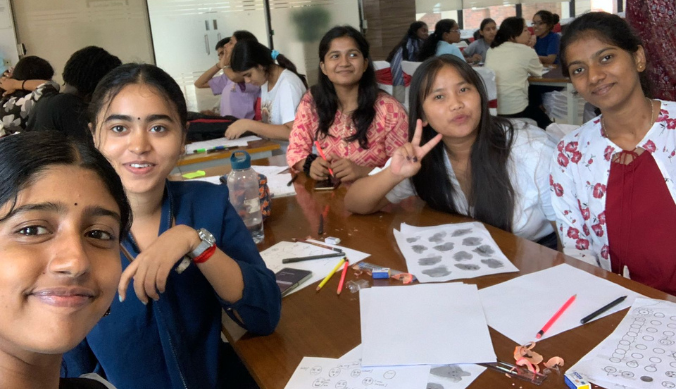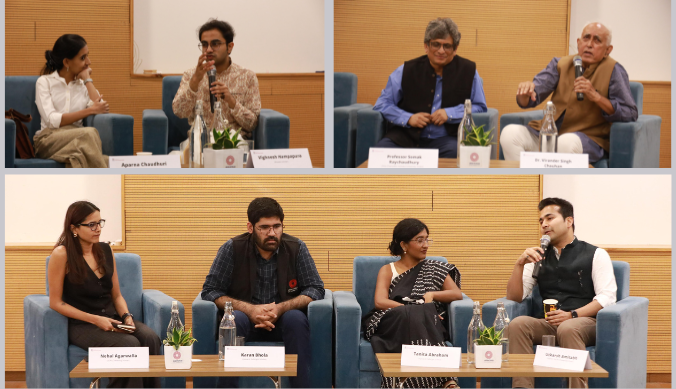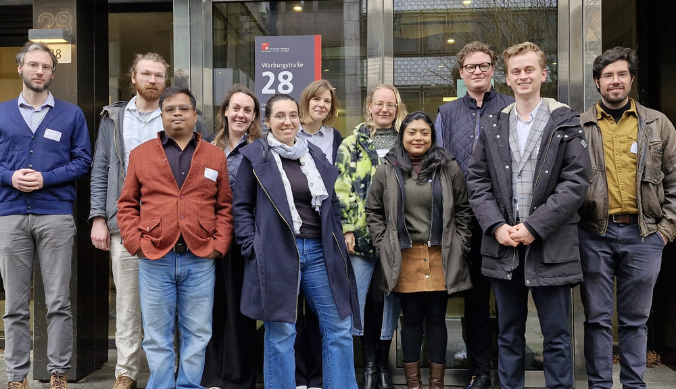Centre for Economic Data and Analysis (CEDA): Facilitating Informed Debate About Economic and Social Developments in India
Prof. Ashwini Deshpande provides a snapshot of the work done by CEDA over the years

Ashwini Deshpande
11 September, 2023 | 4m read“Data is the new oil”. I am sure you have heard this a lot. What does this actually mean? The word “data” is an oft-used but somewhat amorphous word, which has several different meanings and functions. Data is information. Data is a commodity. Data is power.
Data in the modern world is of two types. One is information circulating as “data” or “facts”. We are surrounded by this, and it is hard to separate the wheat from the chaff. Two, usable, reliable data that clarifies and informs. For us, the creators of CEDA, the challenge was to identify reliable data and make it usable as well as informative.
CEDA’s goal or mission statement is to demystify data. We believe that engaging with India’s socio-economic data should not feel like looking into a crystal ball. Therefore, CEDA has three core objectives:
- Consolidate data: CEDA aims to be a one-stop window for usable data that connects various datasets and indicators of the socio-economic reality of India.
- Communicate with data: Disseminate this data to our target audiences: researchers, journalists, civil society, policymakers and interested lay observers.
- Upskill on data: train students, industry, academia, and policymakers in careful and rigorous data analysis.
The first objective meant that we needed to create a data portal that goes beyond creating a repository of raw data. We needed to create a database of usable summary statistics: means, and percentages that went beyond national averages. We decided to create an interactive data portal that connects summary statistics on key indicators across geography (national, state and district levels), time, and demographic characteristics.
The second objective meant that a) users should be able to visualise the data, as pictures speak more strongly than numbers or words; and b) we needed explainers that focus on the key highlights from a given set of numbers. That’s how our trademark features were born: Data Narratives, Picture This, Researchers’ Corner; CEDA-CMIE bulletins etc.
Our First Year
Following background discussions in the Economics department, by the time we actually started recruiting a small team, the COVID-19 pandemic hit. The world as we knew it got upturned. We started with a tiny team on a shoestring budget that negotiated the complexities of online and remote work amid all the pandemic-induced insecurities and anxieties.
It was not easy. But you would not be able to tell by looking at Chart 1 which sums up our first year.
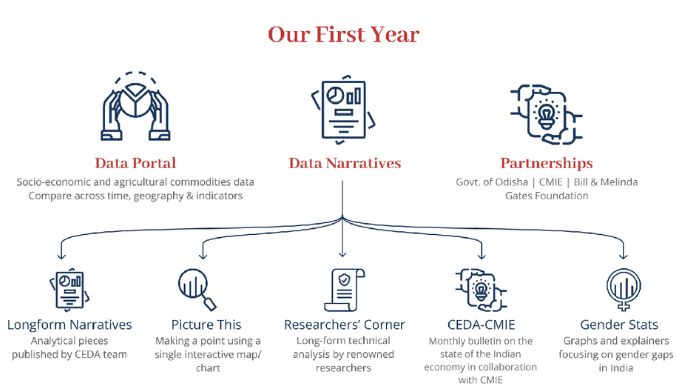
Charts 2 and 3 seem pretty unbelievable as I look back on the trials and tribulations of our journey.
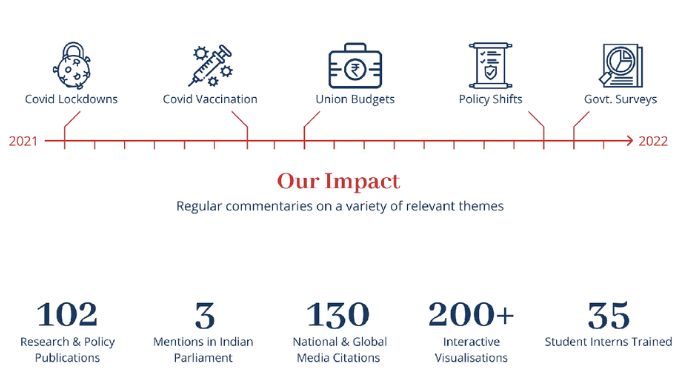
There were many occasions when we would pause and reflect, filled with self-doubt. Are we really contributing to the pool of knowledge, to demystifying data? Are our pieces enhancing a reasoned, rational, objective, non-partisan discussion of issues?
Apparently yes! Chart 3 lists media highlights from the first year. The latest data shows that our readership has expanded significantly.
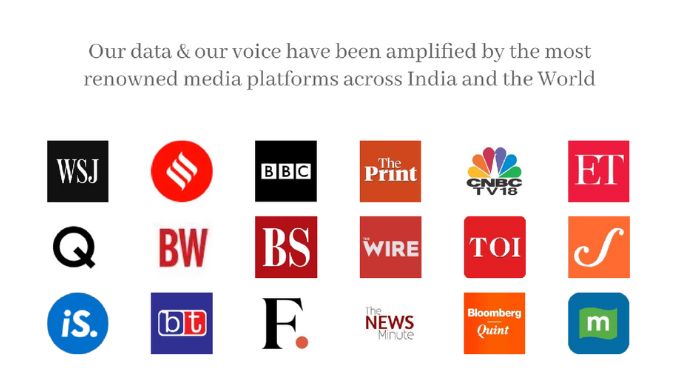
The CEDA Data Portal
Chart 4 summarises the first two years of the data portal. This is work-in-progress and as the other articles by the CEDA team highlight, the data portal has gone beyond this summary.
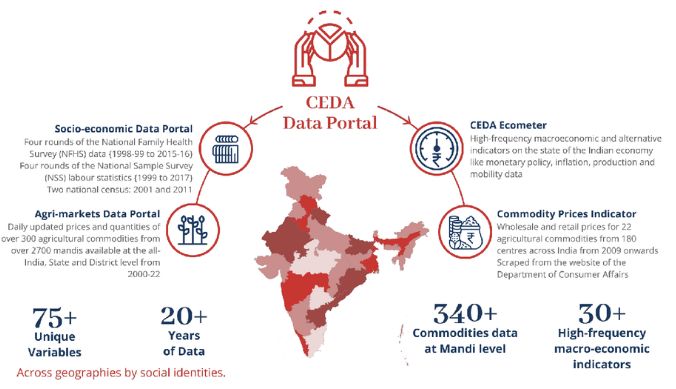
This issue of Ashoka Reflections(the University’s monthly newsletter) has pieces by faculty colleagues, Kanika Mahajan and S.K. Ritadhi, our new Director Abhay Gupta, our editor, Akshi Chawla (the creator of the fabulous Women and Work newsletter, which you should immediately sign up for in case you have not done that already) and Tanish Bafna, who worked with us during his ASP year as a student intern. These pieces go into specific details of our ongoing work. Read their pieces, engage with our work, and spread the good word. I am grateful to everyone who has believed in us and supported us over the last three years. I look forward to more active engagement from the readers of Ashoka Reflections.
(Ashwini Deshpande is the Head of the Department of Economics and Professor of Economics at Ashoka University)
Study at Ashoka










